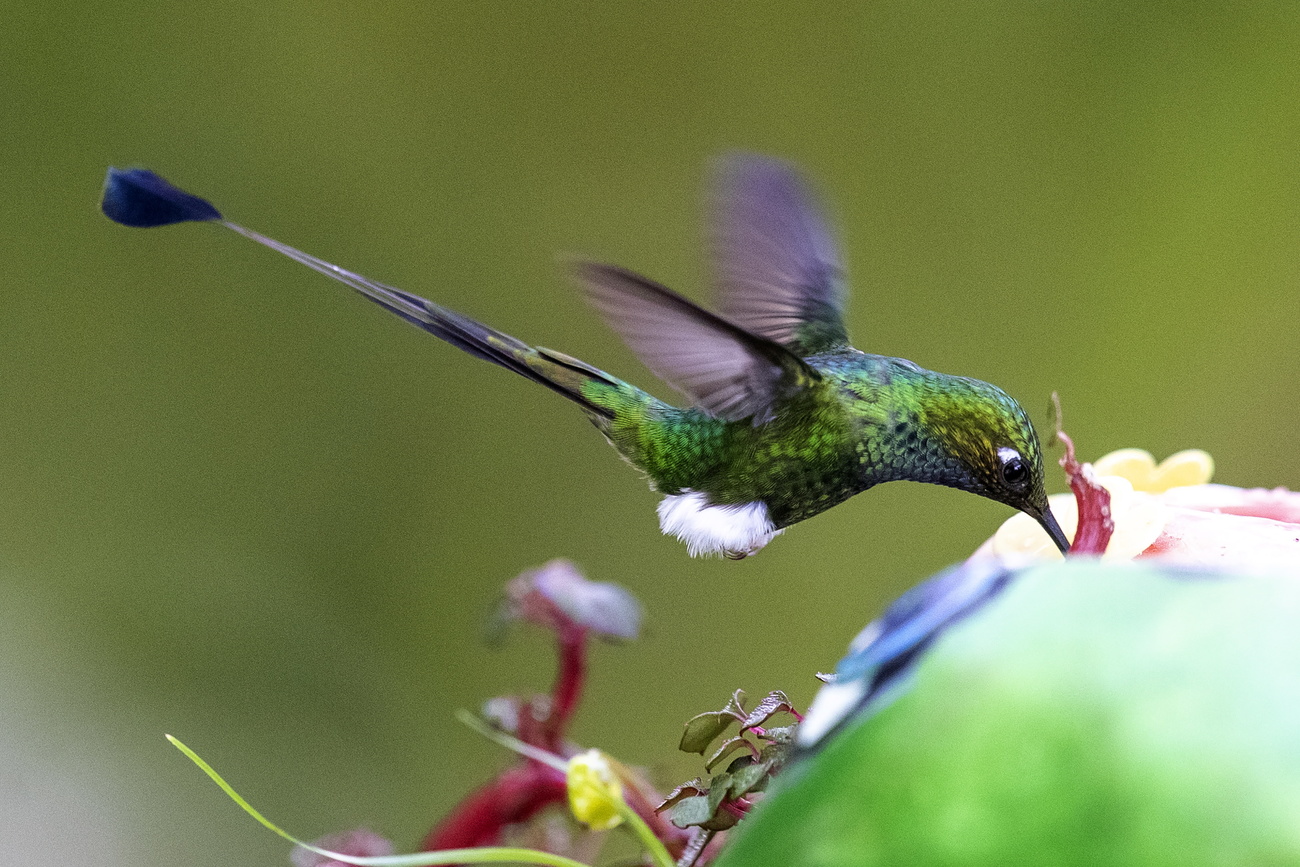
COP15: Swiss welcome ‘important step for biodiversity’

A new global biodiversity deal is a considerable success, according to Switzerland’s environment ambassador. However, Switzerland would like to have seen even more ambitious goals on some points.
On Monday the United Nations Biodiversity ConferenceExternal link (COP15) approved a landmark global deal to protect nature and direct billions of dollars towards conservation, but objections from key African nations, home to large tracts of tropical rainforest, held up its final passage.
The Kunming-Montreal Global Biodiversity Framework, reflecting the joint leadership of China and Canada, is the culmination of four years of work towards creating an agreement to guide global conservation efforts through 2030.
“The agreement is an important step for biodiversity,” said Franz PerrezExternal link, Swiss ambassador for the environment and head of the international affairs division at the Federal Office for the Environment.
“The strength of the agreement is the very concrete goals,” said Perrez, who led the negotiations for the Swiss delegation. In particular, the goal of placing at least 30% of the world’s land and marine areas under protection by 2030 is a success, he said.

More
Will the new biodiversity framework help us live in harmony with nature?
More than one million species could vanish by the century’s end in what scientists have called a sixth mass-extinction event. As much as 40% of the world’s land has been degraded, and wildlife population sizes have shrunk dramatically since 1970.
Perrez admitted that Switzerland had been hoping for even more ambitious targets on some points. “We would like to have seen a numerical target for the reduction of pesticides,” he said, adding that more countries could have declared their willingness to provide funding for the protection of biodiversity.

More
COP 15, a summit to halt the mass extinction of species
‘Time to implement’
The deal directs countries to allocate $200 billion (CHF186 billion) a year for biodiversity initiatives from both public and private sectors. Developed countries will provide $25 billion in annual funding starting in 2025 and $30 billion a year by 2030.
The agreement, which contains 23 targets in total, replaces the 2010 Aichi Biodiversity Targets that were intended to guide conservation through 2020. None of those goals was achieved, and no single country met all 20 of the Aichi targets.
Unlike Aichi, this deal contains more quantifiable targets – such as reducing harmful subsidies given to industry by at least $500 billion a year – that should make it easier to track and report progress.
Now it’s time to implement these goals, Perrez insisted. “I hope this agreement will give as many countries as possible an impulse to adapt their national strategies accordingly,” he said. Switzerland, too, must now examine how it will take these results into account in its national biodiversity strategy, he said.
The State Secretariat for Economic Affairs (SECO) will provide CHF5 million ($5.4 million) in funding for the NatureFinance projectExternal link. This will enable financial institutions in developing countries to give biological diversity more consideration when financing economic activities, SECO said in a statementExternal link on Monday.
NatureFinance will focus on SECO priority countries Peru, Colombia, South Africa and Indonesia, as their high level of existing biological diversity makes them particularly suitable to be pilot countries.
The project aims to encourage financial institutions to give more consideration to ecological opportunities and risks when making decisions on financing, which should increase cash flow to sustainable sectors and companies. Instruments and methods to assess ecological risk will be further developed, and financial institutions will receive training on how to use them. This in turn will provide the basis for establishing global standards.
SECO will provide CHF5 million over the next four years to support international partners as they carry out the project.
NGO reaction
Environmental NGOs have a mixed reaction. WWF expressed its basic satisfaction. “Agreeing a shared global goal that will guide collective and immediate action to halt and reverse nature loss by 2030 is an exceptional feat for those that have been negotiating the Global Biodiversity Framework, and a win for people and planet,” WWF International Director General Marco Lambertini said in a statementExternal link.

More
COP15 summit kicks off to save biodiversity
However, there were also weak points. WWF Switzerland criticised the lack of a binding mechanism to hold governments accountable if they did not meet the targets.
Greenpeace Switzerland also criticised the fact that it remains open how these goals will be achieved.
According to Birdlife Switzerland, the agreement is a step in the right direction, but it is not enough to stop the loss of biodiversity.
Environmental organisation Pro Natura reacted with disillusionment. It has not been possible to initiate a turnaround for saving nature, it said in a statement.

More
The Swiss Alps are beautiful, but are they biodiverse?
More

In compliance with the JTI standards
More: SWI swissinfo.ch certified by the Journalism Trust Initiative





























You can find an overview of ongoing debates with our journalists here . Please join us!
If you want to start a conversation about a topic raised in this article or want to report factual errors, email us at english@swissinfo.ch.